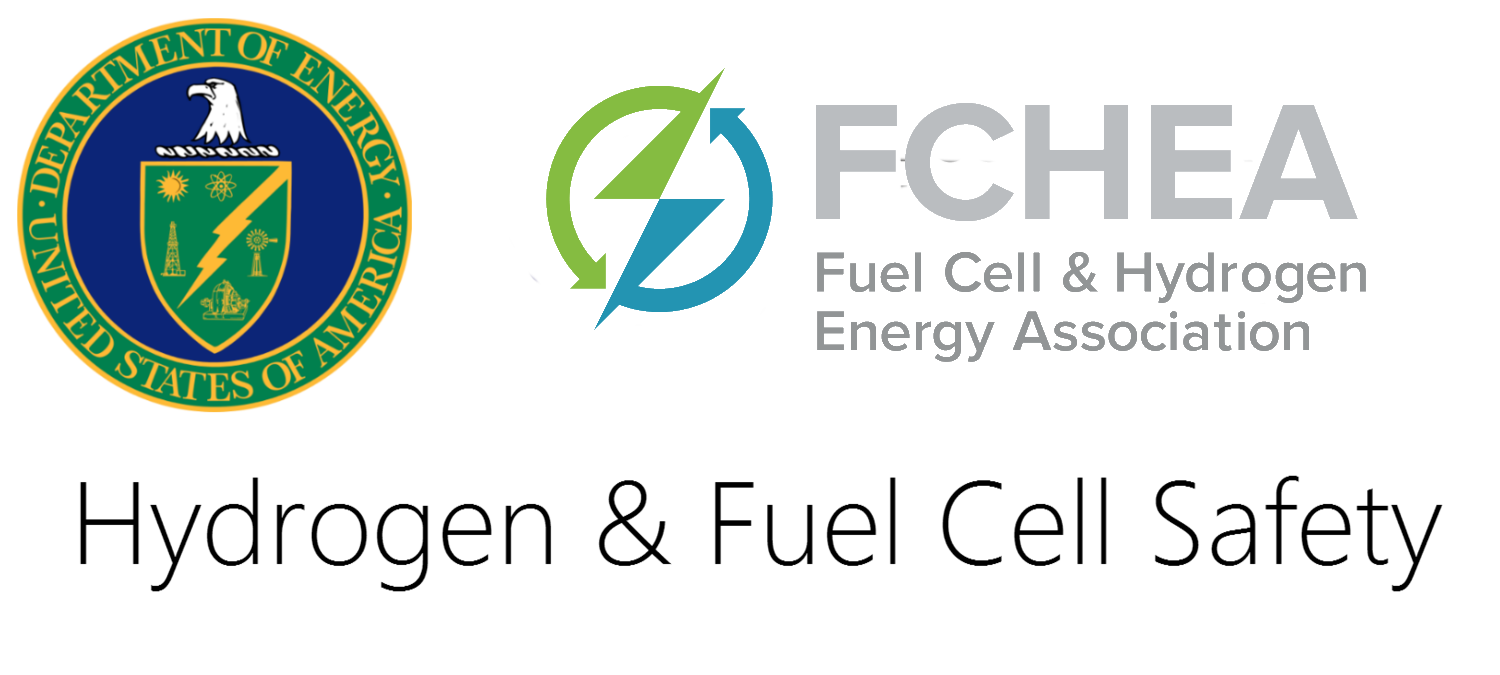July 2021 Hydrogen and Fuel Cell Safety Report
Table of Contents
DOE Announces Hydrogen Program Awards
by Jennifer Gangi, FCHEA
IEC TC 105 Revises Numbering System
by Karen Quackenbush, FCHEA
by Karen Quackenbush, FCHEA
Center for Hydrogen Safety Training Courses Available
by Karen Quackenbush, FCHEA
by Jennifer Gangi, FCHEA
Did You Know? ANSI Gaps Progress Report Published
by Karen Quackenbush, FCHEA
National Hydrogen and Fuel Cell Codes and Standards Coordinating Committee Minutes - May 5, 2021
National Hydrogen and Fuel Cell Codes and Standards Coordinating Committee Minutes - June 2, 2021
DOE Announces Hydrogen Program Awards
by Jennifer Gangi, FCHEA
The U.S. Department of Energy (DOE) Hydrogen Program 2021 Annual Merit Review and Peer Evaluation Meeting was held virtually June 7-11, 2021. On the first day of the event, 22 awards were presented to acknowledge R&D contributions from individuals in specific areas.
Brian Ehrhart, a chemical engineer at Sandia National Laboratories in Albuquerque, New Mexico, was the sole recipient of the “Technology Acceleration and Safety, Codes and Standards” award.
Ehrhart is Hydrogen Risk Assessment Model (HyRAM) Team Lead at Sandia and was recognized for his expertise in risk assessment for hydrogen vehicles and infrastructure that led to the development of HyRAM as well as versions 2.0 and 3.0 that now incorporates liquid hydrogen capabilities, a critical addition to support DOE’s H2@Scale initiative and large-scale deployment of hydrogen. Ehrhart was also singled out for his leadership in assessing the current state of regulations, codes, and standards, resulting in the Federal Oversight of Hydrogen Systems report and a gap analysis for rail applications.
Other award categories included: Hydrogen Technologies—Production, with 6 recipients from 6 different institutions; Fuel Cells, with 6 recipients from 3 different institutions; Technology Acceleration, recognizing 5 individuals from one institution; and Systems Analysis, awarded to 4 individuals from one institution.
To see the full list of Hydrogen Program Award recipients, please visit:
IEC TC 105 Revises Numbering System
by Karen Quackenbush, FCHEA
IEC/TC 105, the International Standards body for Fuel Cell Technologies, has implemented a new numbering system for existing and newly established Working Groups (WGs) and Maintenance Teams (MTs).
A comparison of old numbers and new numbers is provided here to aid those looking for information on the IEC portal.
IEC/TC 105 WG and MT numbering comparison:
CGA Update
by Karen Quackenbush, FCHEA
On June 9, 2021, Rich Gottwald, President and CEO of the Compressed Gas Association (CGA), delivered a presentation at the American Hydrogen Forum in Houston, Texas, entitled, “CGA’s Hydrogen Roadmap: Safety Is Step #1.”
CGA shares highlights from Rich’s presentation here.
CGA has also been conducting a series of webinars exploring issues such as hydrogen safety, pressure relief devices, and cylinder requalification operations. To learn more about CGA webinars, please visit: https://www.cganet.com/resources/events/cgaconnect-events/
Center for Hydrogen Safety Training Courses Available
by Karen Quackenbush, FCHEA
The Center for Hydrogen Safety has announced the availability of their first two fundamental hydrogen safety training courses.
ELA201: Hydrogen as an Energy Carrier: https://www.aiche.org/academy/courses/ela201/hydrogen-energy-carrier
ELA202: Properties and Hazards of Hydrogen: https://www.aiche.org/academy/courses/ela202/properties-and-hazards-hydrogen
These are the first of nine courses expected to be released by the end of the year. A fundamental hydrogen safety credential will be available in early 2022 based on completion of all nine courses and passing an exam. In addition to the course availability through the American Institute of Chemical Engineers (AIChE) online Academy, these courses can be deployed to your company’s learning management system (LMS).
Please contact Nick Barilo at nickb@aiche.org if you have a desire to learn more about the courses or how they can be utilized to support your organization’s goals.
Australia Training Courses
by Jennifer Gangi, FCHEA
H2Networks has compiled an overview of vocational (VET) hydrogen training courses in Australia as of June 30, 2021, with the goal of ensuring there is an equipped and skilled technical workforce to provide servicing and installation support for hydrogen equipment manufacturers and retailers. The document is open source and if any company has input to add, edit, or improve the material for the next release, a form and contact information can be found on pages 12 and 14, respectively.
More information is available here.
Did You Know? ANSI Gaps Progress Report Published
by Karen Quackenbush, FCHEA
On June 30, 2021, the American National Standards Institute (ANSI) announced the availability of a Gaps Progress Report tracking efforts over the last year by standards developing organizations (SDOs) and others to address the gaps identified in the Standardization Roadmap for Unmanned Aircraft Systems (version 2.0, June 2020), published by the ANSI Unmanned Aircraft Systems Standardization Collaborative (UASSC).
The roadmap identified 71 open gaps where no published standard or specification exists to respond to a particular industry need. It also noted 53 gaps where additional pre-standardization research and development (R&D) is needed. The Gaps Progress Report is a living document to track progress of addressing these gaps.

